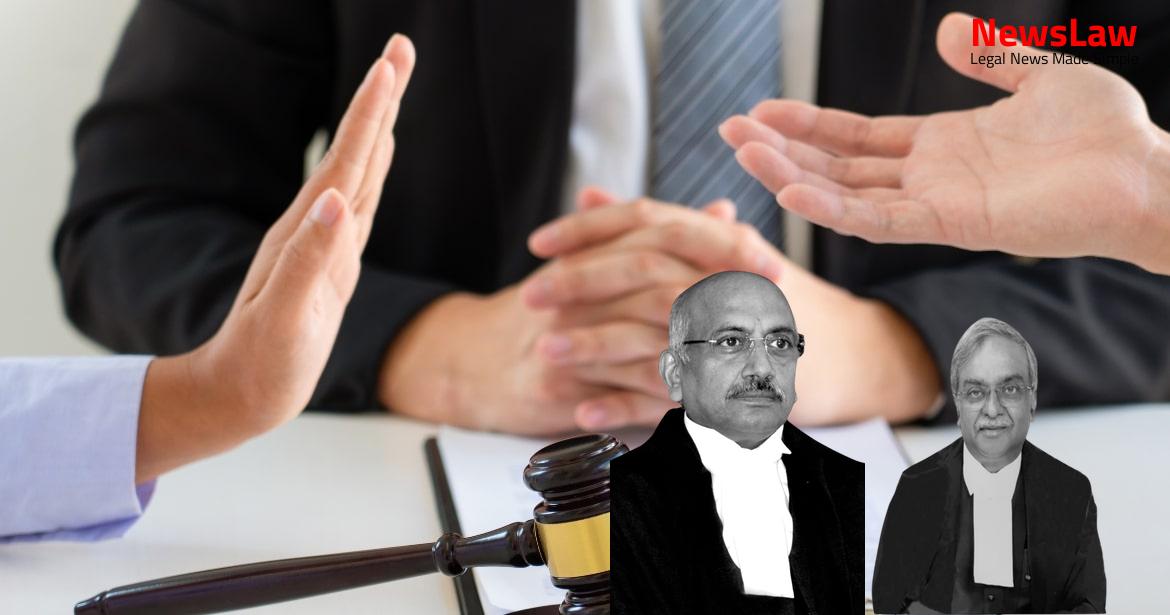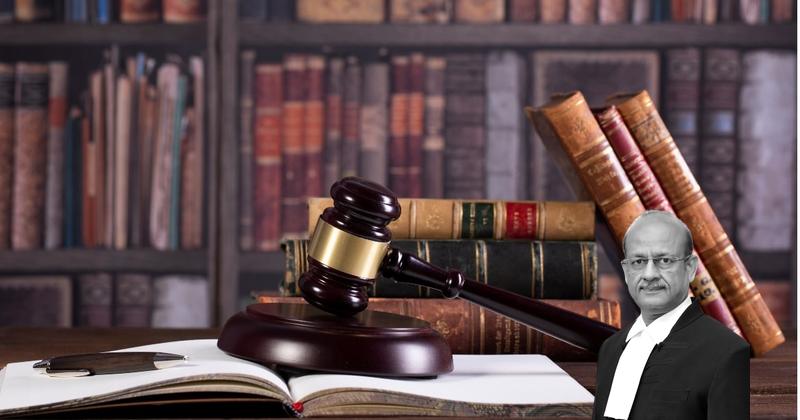Challenging a summoning order issued by the Court of the Special Judge, Anti-Corruption, CBI Court No.1, Ghaziabad, on a complaint lodged by the respondent under Section 45 read with Section 44 of the Prevention of Money-laundering Act, 2002, the petitioner has come up with the above writ petition under Article 32 of the Constitution of India. After the petitioner submitted a detailed response to the Mumbai Zonal Office of the Enforcement Directorate, the Delhi Zone-II Office of the Directorate of Enforcement registered a complaint in ECIR No.DLZO-II/58/2021 on 11.11.2021, in the Court of the Special Judge at Ghaziabad. In a second writ petition filed by the petitioner, the High Court of Delhi restrained the Directorate of Enforcement from taking further steps under Section 8 of the PMLA on the short ground that the validity period of 180 days, of the order of provisional attachment, came to an end statutorily on 4.8.2022. Vrinda Grover, learned Counsel for the petitioner that the challenge to the impugned Summoning Order is limited to the question of territorial jurisdiction alone and that the impugned Summoning Order is not being challenged on any ground other than the lack of territorial jurisdiction. Heavy reliance is placed by the learned Counsel for the petitioner on the opinion of this Court in paragraphs 353 to 358 of the decision in Vijay Madanlal Choudhary & Ors.
In case the scheduled offence is triable by Special Court under the special enactment elsewhere, the provision, as amended, makes it amply clear that both the trials after coming into effect of this Act need to proceed independently, but in the area where the offence of money-laundering has been committed.
It is also contended that the Court of the Special Judge, ought to have returned the complaint to the respondent, in terms of Section 201 of the Code of Criminal Procedure and that the Order taking cognizance is vitiated also by non-application of mind. In addition, it is contended by the learned Solicitor General that the petitioner was alleged to have received money through an online crowdfunding platform and that there were several victims within the territorial jurisdiction of the Court of the Special Judge who had contributed money. Section 3 of the Act makes a person guilty of the offence of money-laundering, if he (i) directly or indirectly attempts to indulge; or (ii) knowingly assists or; (iii) knowingly is a party; or (iv) is actually involved in any process or activity. The Explanation under Section 3 makes it clear that even if the involvement is in one or more of the following activities or processes, namely, (i) concealment; (ii) possession; (iii) acquisition; (iv) use; (v) projecting it as untainted property; or (vi) claiming it as untainted property, the offence of money- laundering will be made out.
Sub-section (2) of Section 43 empowers a Special Court constituted under Section 43(1), also to try an offence other than the offence punishable under Section 4 of the PMLA, with which the accused may be charged at the same trial under the Cr.P.C. (2) While trying an offence under this Act, a Special Court shall also try an offence, other than an offence referred to in sub-section (1), with which the accused may, under the Code of Criminal Procedure, 1973 (2 of 1974), be charged at the same trial.”
At the outset, Section 44(1) takes note of two different contingencies, namely, (i) cases where the scheduled offence as well as the offence of money-laundering are committed within the territorial jurisdiction of the same Special Court constituted under Section 43(1); and (ii) cases where the Court which has taken cognizance of the scheduled offence, is other than the Special Court which has taken cognizance of the complaint of the offence of money- laundering. Provided that the Special Court, trying a scheduled offence before the commencement of this Act, shall continue to try such scheduled offence; or; (b) a Special Court may, upon a complaint made by an authority authorised in this behalf under this Act take cognizance of offence under section 3, without the accused being committed to it for trial; Provided that after conclusion of investigation, if no offence of money-laundering is made out requiring filing of such complaint, the said authority shall submit a closure report before the Special Court; or (c) if the court which has taken cognizance of the scheduled offence is other than the Special Court which has taken cognizance of the complaint of the offence of money-laundering under sub-clause (b), it shall, on an application by the authority authorised to file a complaint under this Act, commit the case relating to the scheduled offence to the Special Court and the Special Court shall, on receipt of such case proceed to deal with it from the stage at which it is committed. Explanation.—For the removal of doubts, it is clarified that,— (i) the jurisdiction of the Special Court while dealing with the offence under this Act, during investigation, enquiry or trial under this Act, shall not be dependent upon any orders passed in respect of the scheduled offence, and the trial of both sets of offences by the same court shall not be construed as joint trial; (ii) the complaint shall be deemed to include any subsequent complaint in respect of further investigation that may be conducted to bring any further evidence, oral or documentary, against any accused person involved in respect of the offence, for which complaint has already been filed, whether named in the original complaint or not.”
What is dealt with by Section 44(1)(a) is a situation where there is no complication.
By prescribing that an offence punishable under Section 4 of the PMLA and any scheduled offence connected to the same shall be triable by the Special Court constituted for the area in which “ the offence ” has been committed, Section 44(1)(a) makes it crystal clear that it is the Special Court constituted under Section 43(1), which will be empowered to try even the scheduled offence connected to the same. If the Court which has taken cognizance of the scheduled offence is different from the Special Court which has taken cognizance of the offence of money-laundering, then the authority authorised to file a complaint under PMLA should make an application to the Court which has taken cognizance of the scheduled offence. Since the Act contemplates the trial of the scheduled offence and the trial of the offence of money-laundering to take place only before the Special Court constituted under Section 43(1), a doubt is prone to arise as to whether all the offences are to be tried together.
Though the PMLA contains a non-obstante clause in relation to the Cr.P.C, both in Section 44(1) and in Section 45(1), there are two other provisions where the Code of Criminal Procedure is specifically declared to apply to the proceedings before a Special Court. Section 46(1) specifically makes the provisions of the Cr.P.C applicable to proceedings before a Special Court. As articulated in Kaushik Chatterjee (supra), the jurisdiction of a civil court is limited by territorial as well as pecuniary limits, but the jurisdiction of a criminal court is determined by (i) the offence; and/or (ii) the offender.
The principles laid down in Sections 177 to 184 of the Code (contained in Chapter XIII) regarding the jurisdiction of criminal courts in inquiries and trials can be summarised in simple terms as follows: 20.1. In the case of a continuing offence which is committed in more local areas than one, it may be inquired into or tried by a court having jurisdiction over any of such local areas. An offence of criminal misappropriation or criminal breach of trust may be inquired into or tried by a court within whose local jurisdiction the offence was committed or any part of the property was received or retained or was required to be returned or accounted for by the accused person.
An offence which includes cheating, if committed by means of letters or telecommunication messages, may be inquired into or tried by any court within whose local jurisdiction such letters or messages were sent or received. An offence of cheating and dishonestly inducing delivery of the property may be inquired into or tried by a court within whose local jurisdiction the property was delivered by the person deceived or was received by the accused person. Cases falling under Section 219 ( three offences of the same kind committed within a space of twelve months whether in respect of the same person or not ), cases falling under Section 220 (commission of more offences than one, in one series of acts committed together as to form the same transaction) and cases falling under Section 221, (where it is doubtful what offences have been committed), may be inquired into or tried by any court competent to inquire into or try any of the offences.
Sections 188 and 189 deal with offences committed outside India.”
It may be seen from the principles culled out from Sections 177 to 184 of the Cr.P.C that almost all contingencies that are likely to arise have been carefully thought out and laid down in these provisions. Coming to the second question arising for our consideration, clause (a) of sub-section (1) of Section 44 leaves no semblance of any doubt that the offence of money-laundering is triable only by the Special Court constituted for the area in which the offence of money-laundering has been committed.
To put it differently, the area in which the place of acquisition of the proceeds of crime is located or the place of keeping it in possession is located or the place in which it is concealed is located or the place in which it is used is located, will be the area in which the offence has been committed. It is the case of the petitioner that what was attached by the Enforcement Directorate under Section 5 of the Act as proceeds of crime, was the bank account of the petitioner in Navi Mumbai, Maharashtra and that therefore the offence of money- laundering, even according to the respondent has been committed in Maharashtra. Therefore, Navi Mumbai, Maharashtra is the place where the proceeds of crime were taken possession of ( if they were actually proceeds of crime ). That the issue of jurisdiction of a court to try an “offence” or “offender” as well as the issue of territorial jurisdiction, depend upon facts established through evidence. That these questions may have to be raised before the court trying the offence and such court is bound to consider the same.”
Case Title: RANA AYYUB Vs. DIRECTORATE OF ENFORCEMENT (2023 INSC 101)
Case Number: W.P.(Crl.) No.-000012 / 2023



